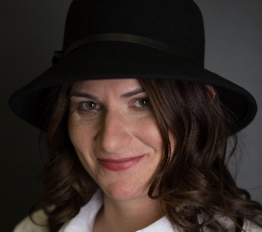This is a two-part blog post. After reading about the value of certifications in our changing job market here, head over to Credly’s blog to read more about best practices for professional growth through certification.
Six years ago, I began working with people interested in advancing their current career or even completely changing their line of work. The majority of the people I connected with felt compelled to follow their passion and their fastest, most cost-effective, and a reliable option was through a certification that would validate their skills and demonstrate what they are able to contribute to a team.
How do we end up in unfulfilling jobs?
More and more people are launching a completely different second and even third careers. How has this become such a common occurrence?
- When did you decide what you wanted to do with your professional life? We often choose a career path when we’re very young – before we know ourselves well enough to choose a fulfilling path. But today, people are living and working longer, meaning we are likely very different people toward the middle and end of our professional careers.
- What other interests have you learned about over the years? We change over time. We are exposed to new and interesting ideas that catch and hold our attention. A recent study out of Stanford University makes a case for starting a new career in your 30’s and 40’s – when the rest of your life allows you to focus on your professional goals.
- Has the work and your opportunity always been there? Sometimes it takes time for the opportunity we need to arise. Whether it’s the time, commitment, or money to go to school or gain the right experience, it sometimes takes years for us to run across the right formula for our success.
Too many people wallow in regret about choices they made early in their careers. They kick themselves for the educational emphasis they chose, for the job they took, or for not considering a change sooner. That’s all a wasted effort – and, as you can see from the list above, in many cases it’s not a fair assessment of their situation. Identifying the way you’re going to contribute to the world changes over time and often requires elements outside of your control to come together.
You’ve probably heard people say the decision to make a change is often the hardest part of any transition. In many cases, that is true! Once a commitment is made, the work begins – but it’s often the mental roadblocks we create before a transition that are our biggest hurdles. That being said, once the decision to change careers has been made, what do you do?
What’s needed to make the transition?
In recent years, there has been a great deal of discussion encouraging high school graduates to find the right education for their personal and professional goals instead of just following their friends to a traditional college or university. More people are discouraging young adults from going straight to a long and expensive educational program and to instead take a gap year or pursue training in a specific trade that will have them earning an excellent, dependable wage quickly and with significantly less debt. Young adults and their parents are realizing the importance of calculating ROI and making choices that get them to their specific desired end result instead of just following the same path others take.
Similarly, people who are considering a career change are looking for efficient ways to transition to a more rewarding career. In some cases, their experience is the most important and maybe the only need. In other cases, additional formal education like a master’s degree may be required. But more and more often, mid-career changers are turning their experience into a proven skill through certification. With a significantly smaller time and financial investment than traditional education, many people are able to prep and test to gain a credential that allows them to stand out in the field they are breaking into.
As a culture, we are getting better at supporting people at every age and stage of their professional lives. We are encouraging them to make the choices most likely to provide them with the opportunity to be happy and successful. Interested in the next steps? Head over to the Credly blog for tips on researching and pursuing certification options.
Author Bio



0 Comments